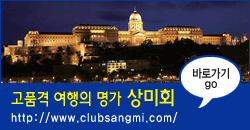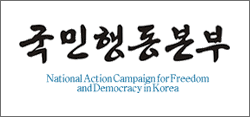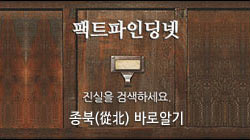*이 글은 싱가포르에서 발행되는 영자지 스트레이트 타임즈에서 가져온 기사이다. 황장엽씨의 김정일 붕괴전략과 비교해서 읽어보면 재미 있다.
Playing out Pyongyang's nuclear game
US' calculated 'chess moves' may be the wrong strategy as N. Korea raises the stakes 'poker-style'
By William Choong
DURING the Cold War, the Soviet Union and the United States played the game of 'chicken', where two drivers on a head-on collision course dare each other to be the one to swerve to avoid the crash.
But when the nuclear powers played chicken, it was a straightforward game.
A North Korean soldier keeps close watch on the border with the South as Pyongyang ups the stakes in its nuclear challenge to the US. -- AP
Washington's problem with a nuclear-armed North Korea today, say Korean watchers, is that both sides are playing different games.
Leader Kim Jong Il, with his liking for poker, is raising the stakes with each fresh disclosure of Pyongyang's nuclear arsenal.
But US President George W. Bush is playing a more calculated game of chess.
In fact, some observers said the talks between Pyongyang and Washington that began on April 23 in Beijing was his attempt to push North Korea into a checkmate.
A belligerent Pyongyang would give America the pretext for launching surgical strikes at its nuclear facilities or a naval blockade to halt its arms exports.
Coupled with economic sanctions, this could bring the regime to its knees, they said.
Two weeks ago, Pyongyang offered to 'deal with' its nuclear programme in small steps if the US were to give, among other things, oil shipments, food aid and security guarantees.
Mr Bush has rejected the offer, saying Pyongyang was 'back to the old blackmail game', The New York Times reported.
Dr Eric Heginbotham, senior fellow for Asia studies at the US-based Council for Foreign Relations, believes that Washington wanted to show the futility of talking to Pyongyang for too long.
'I believe the administration saw the first step in any strategy as simply waiting for North Korea to dig its own grave deeper, something they were quite confident Pyongyang would ultimately do,' he told The Sunday Times.
This was the consensus view in Washington, he said, especially among neo-conservatives fresh from a victory in Iraq.
With every defiant act by North Korea, Washington would be able to bring major players like China and Japan - who were initially opposed to sanctions or other measures - to its side.
The calculations go like this: if North Korea doggedly refuses to dismantle its nuclear arsenal, Washington could take three major steps short of a damaging all-out war.
First, American planes can take out nuclear facilities at Yongbyon - a move that has already been speculated on by some media.
This is not new - in the early 1990s, former president Bill Clinton was close to taking out a plutonium reactor.
Together with Japanese naval forces, Washington could also block North Korea's arms exports, thus depriving it of hard currency earnings estimated at around US$600 million (S$1 billion) a year.
And North Korea would be very hard pressed if China - which supplies 70 per cent of its fuel and 30 per cent of its food aid - could be persuaded to impose economic sanctions.
In short, the Beijing talks were Washington's way of telling Pyongyang that its options are fast running out.
Mr Henry Sokolski, executive director of the Washington-based Non-proliferation Policy Education Centre, told The Sunday Times: 'Washington can play more talks out to demonstrate how few options North Korea has other than self-dismantlement.'
Indeed, Pyongyang is in a dilemma.
If it hangs on to its nuclear arsenal, it would only give hardliners in Washington a chance to pounce.
But if it gave up the stockpile, it would have no more assets to play any more games with Washington.
Some Korean watchers say it is eminently sensible for Pyongyang to want to retain some components of its nuclear arsenal, since it deters any attack on North Korean soil.
And besides being a key bargaining chip for more handouts, nuclear weapons are a key source of prestige for the impoverished Third World country.
With this in mind, military options would have a catastrophic effect on an erratic regime that is willing to suffer immense casualties to keep its nuclear arsenal, they say.
So, to use an aphorism used by the late British premier Winston Churchill after the Korean War in 1954, to jaw-jaw is still better than war-war.
Dr Hazel Smith, a professor at the University of Warwick, said that negotiations could still bring Pyongyang around, given that its key goal after Iraq is regime survival.
And compared to 10 years ago, Washington, Beijing and Tokyo now have more 'informal channels' of communication with Pyongyang, says the old Korean hand who has been in and out of North Korea in the past 13 years.
'If we responded to every statement by North Korea, we would be running around like headless chickens,' she quipped.
What could work out, say other analysts, is a quick negotiated outcome, where Pyongyang dismantles its plutonium- and uranium-based nuclear facilities, leaving only one or two nuclear bombs.
It could then extract security guarantees, economic assistance and food aid from Washington.
Such an option might not be ideal for Mr Bush and company, but the US President might be hard-pressed to find a better solution.
Moreover, his allies in Asia are desperate to avoid a conflict and it is unlikely that the American public would support another war now, even after the victory in Iraq.
Such a compromise would do wonders to cool down the temperature around Pyongyang's neighbourhood.
'The Bushies hate the idea of 'rewarding' bad behaviour but have few options other than positive incentives,' said Professor Andrew Mack, director of the Human Security Centre at the University of British Columbia.
Mr Kim's wager could still work, he told The Sunday Times: 'North Korea will bet the US can live with a small 'capped' nuclear arsenal.'
--------------------------------------------------------------------------------
DIPLOMATIC DANCE
Key events from North Korea's admission of a second nuclear weapons programme last October right up to the present.
Oct 16, 2002 - The United States reveals discovery of North Korea's nuclear-arms programme.
Dec 12, 2002 - Pyongyang reactivates nuclear facilities at Yongbyon.
Dec 21, 2002 - It orders United Nations inspectors to leave.
Jan 6, 2003 - International Atomic Energy Agency tells Pyongyang to abandon its secret programme.
Jan 10, 2003 - Pyongyang withdraws from the Nuclear Non-Proliferation Treaty.
Feb 5, 2003 - It says its nuclear facilities have been 'reactivated'.
Feb 6, 2003 - It warns it will attack US forces if their number in the region rises.
Feb 24, 2003 - It fires a missile into the sea between South Korea and Japan.
Apr 12, 2003 - It signals its readiness to hold direct talks with the US.
Apr 24, 2003 - US officials say Pyongyang told them it has nuclear arms, after the first direct talks in months between the US and North Korea in Beijing.
-- Compiled from agency reports
--------------------------------------------------------------------------------
KEY PLAYERS
A look at where the major powers stand on the Pyongyang nuclear crisis and what they have at stake.
RUSSIA
Not an active mediator, it can play a bigger role. North Korean leader Kim Jong Il is said to be open to advice from President Vladimir Putin.
CHINA
Supplies most of Pyongyang's fuel and much of its food aid, and has tried to hold back its nuclear-weapons programme. Hosted talks between the United States and North Korea two weeks ago.
UNITED STATES
With about 80,000 troops in South Korea and Japan, it wants North Korea's nuclear arsenal dismantled. Following US' triumph Invalid extra lead parameter in Iraq, the hawks might have an upper hand over the doves. They may welcome continued belligerence from Pyongyang to justify a quick military solution.
JAPAN
Has said it will retaliate if Pyongyang attacks. But it fears that a war may be uncontrollable and has also pushed for a diplomatic solution.
SOUTH KOREA
Has the most to lose if war breaks out. It has asked North Korea to abandon its weapons programmes while providing it with aid. At times, its more conciliatory stance puts it at odds with Washington.













 Strait Times
Strait Times







 트위터
트위터 페이스북
페이스북 네이버
네이버



























